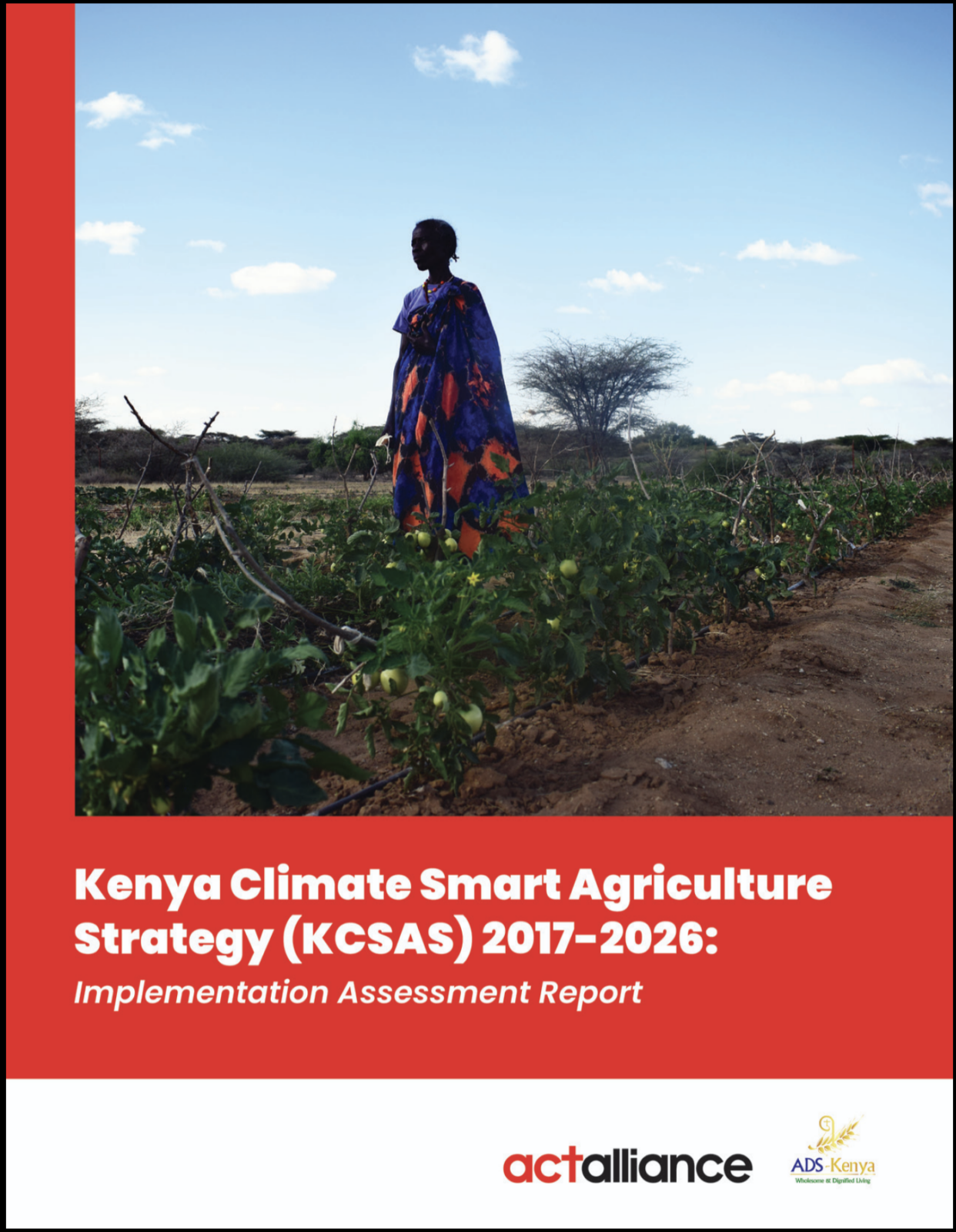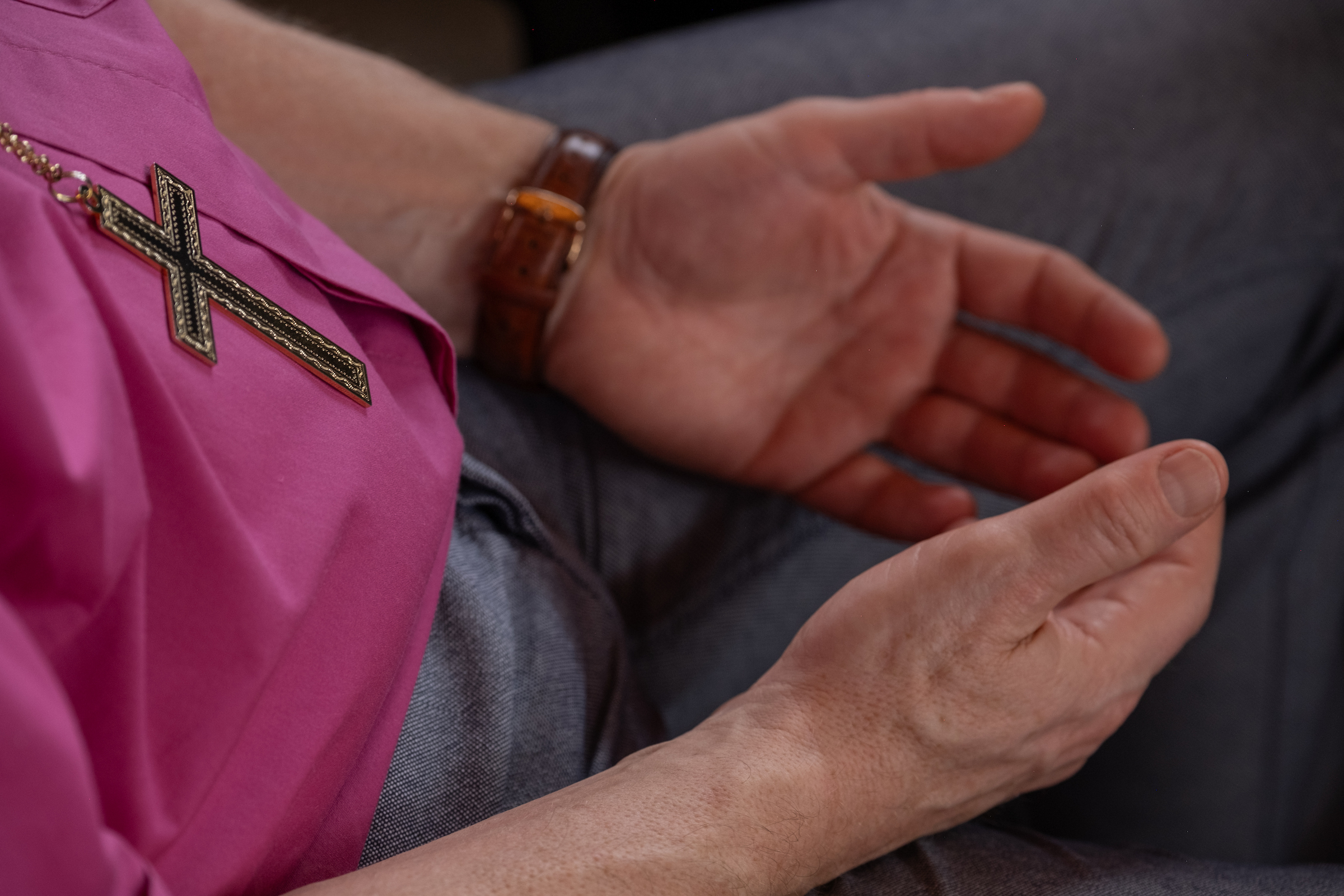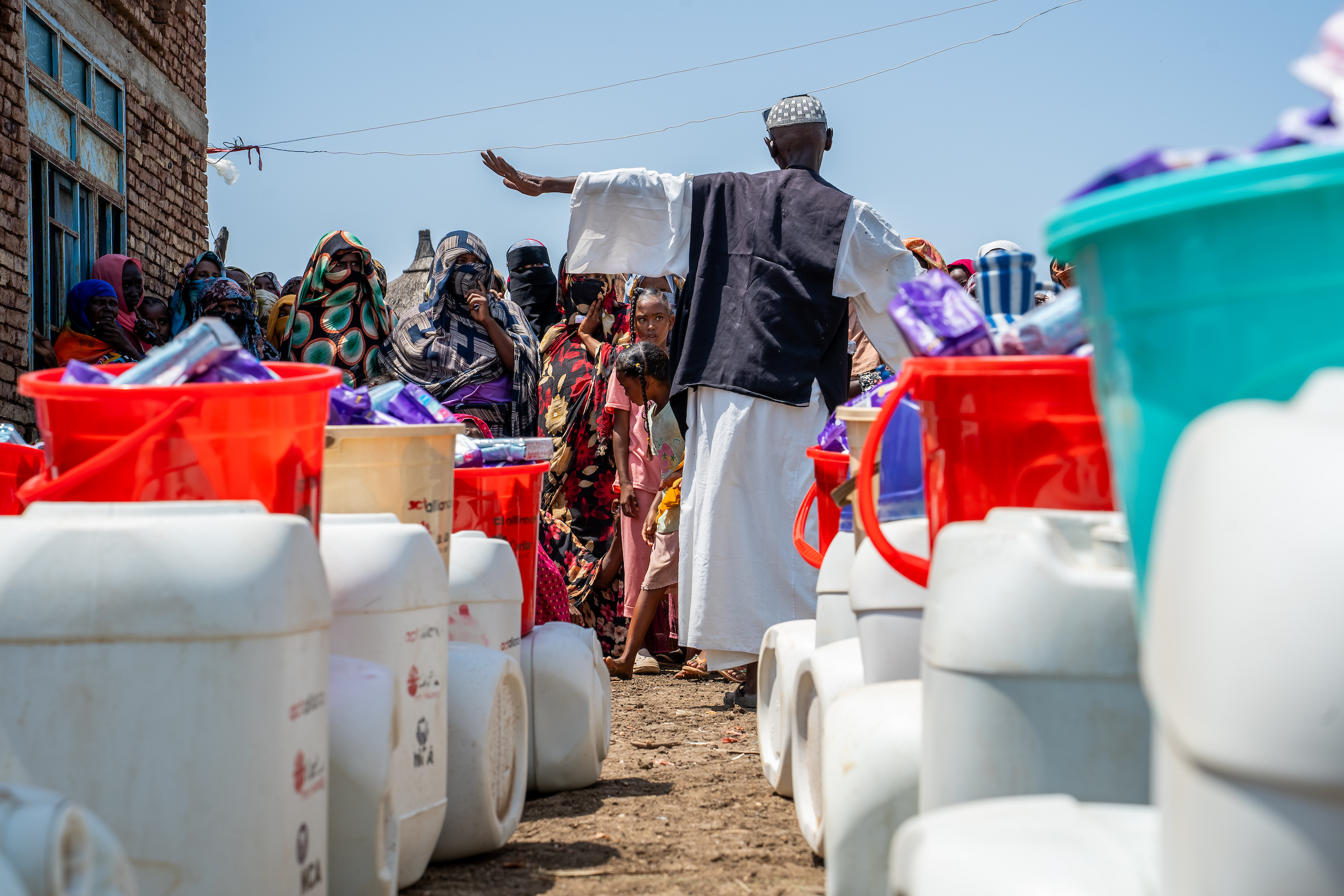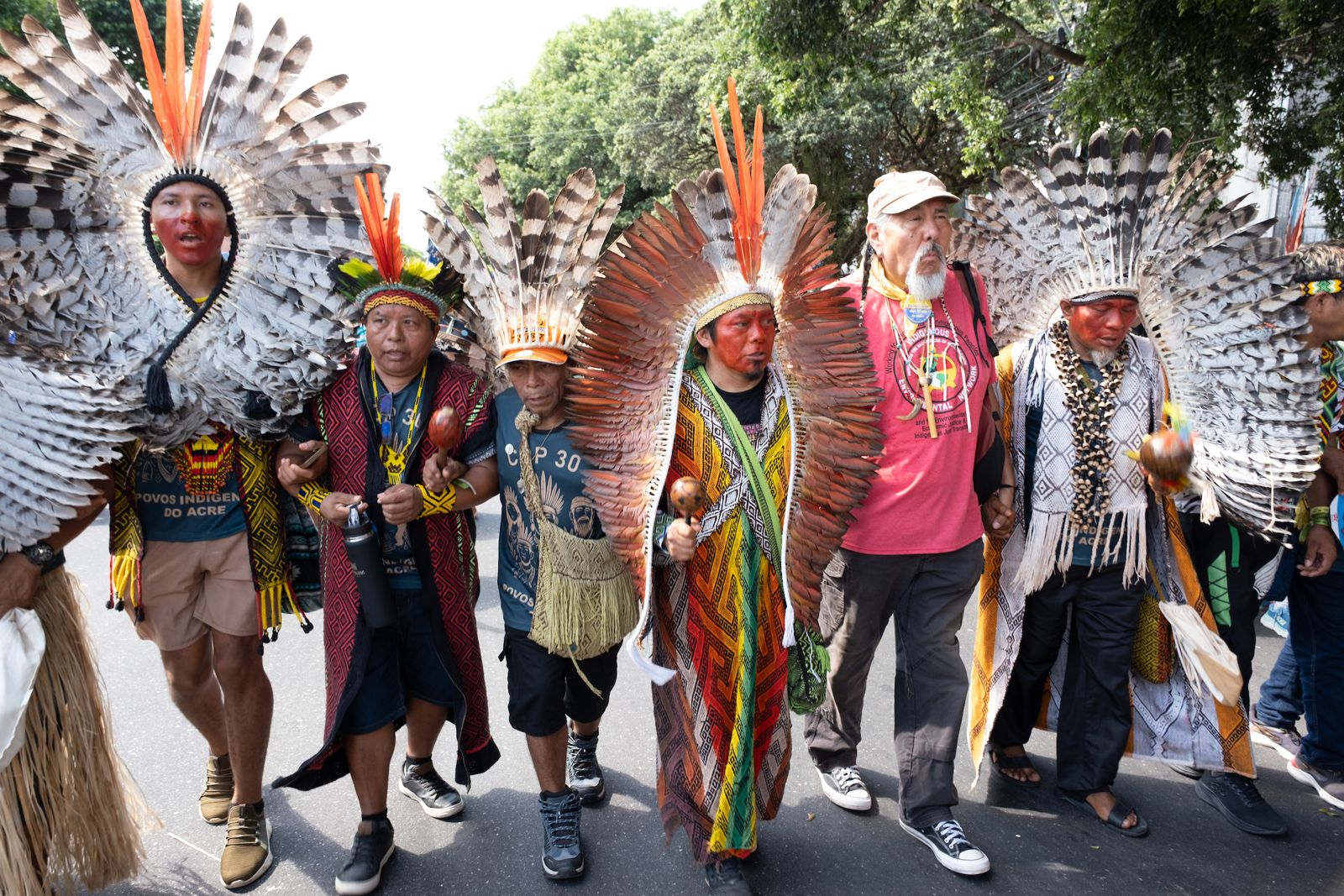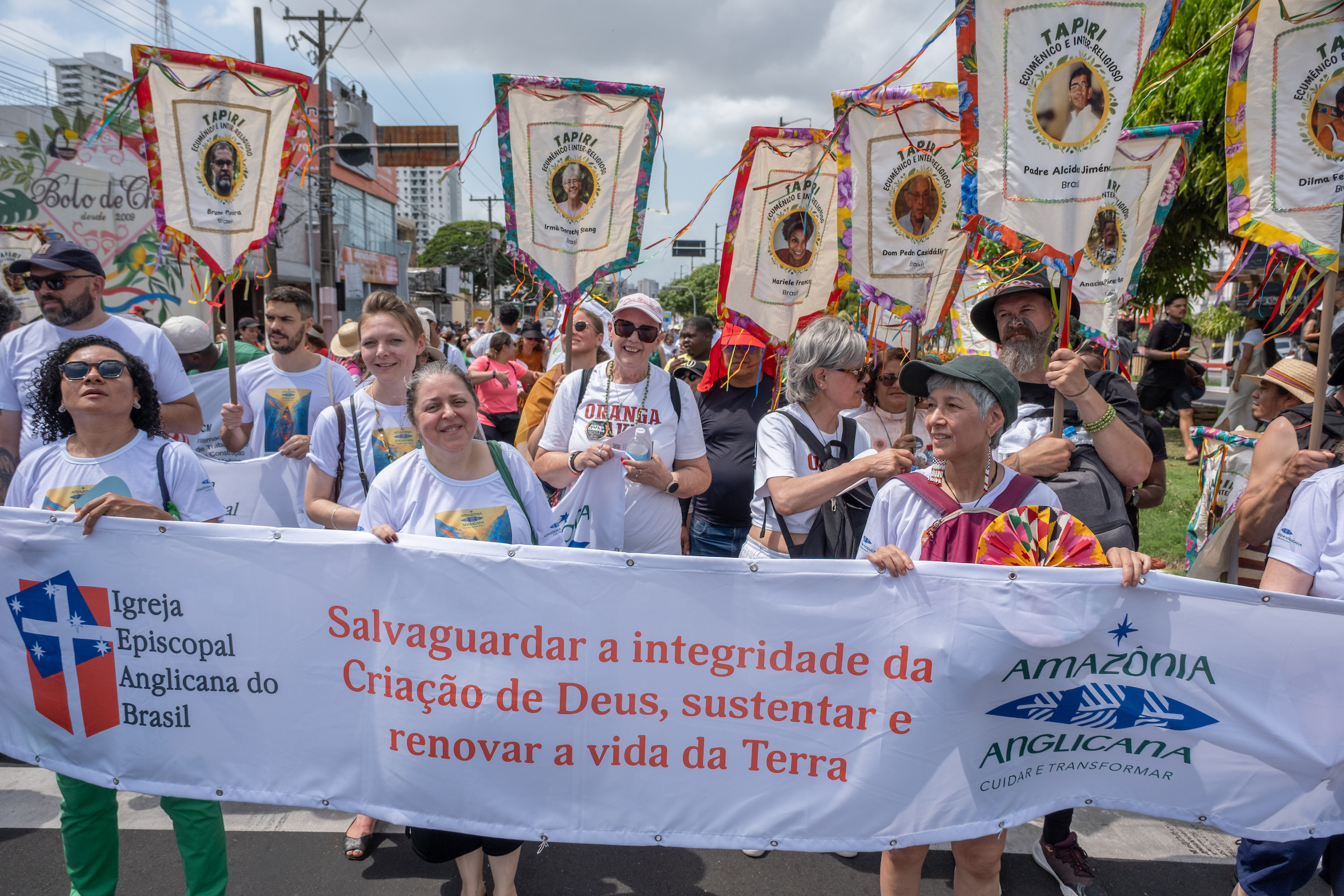Across the world, in the corridors of parliaments and at international negotiating tables, Christian fundamentalism is gaining ground, not only as religious movements, but as influential political forces. Rooted in rigid theological doctrines and often aligned with authoritarian tendencies, these movements are reshaping public debate, influencing domestic and foreign policy, and stalling or reversing hard-won social progress, while they present themselves as guardians of faith, morality and tradition. Their rise has fuelled the erosion of democratic values, and the marginalisation of already vulnerable communities, through justification of violence in the name of an ultra-conservative and selective reading of scripture.
This article draws from two powerful documentaries: Praying for Armageddon – which examines the influence of ultra conservative religious leaders in the United States’ decision to support Israel’s actions against Palestinians in Jerusalem, and Apocalypse in the Tropics – which investigates the role these groups have played in Brazil’s 2023 elections. To explore the political and social dangers of religious fundamentalism, both films reveal how apocalyptic narratives and religious literalism are strategically deployed to mobilise congregations, consolidate political power, and silence dissent.
As a global faith-based coalition committed to justice, dignity, and peace, ACT Alliance believes it is essential to expose and counter these dynamics. The voices of our members, witnessing and challenging these threats in their own contexts, show that there is another way: one where faith stands on the side of human rights, inclusion, and the common good.
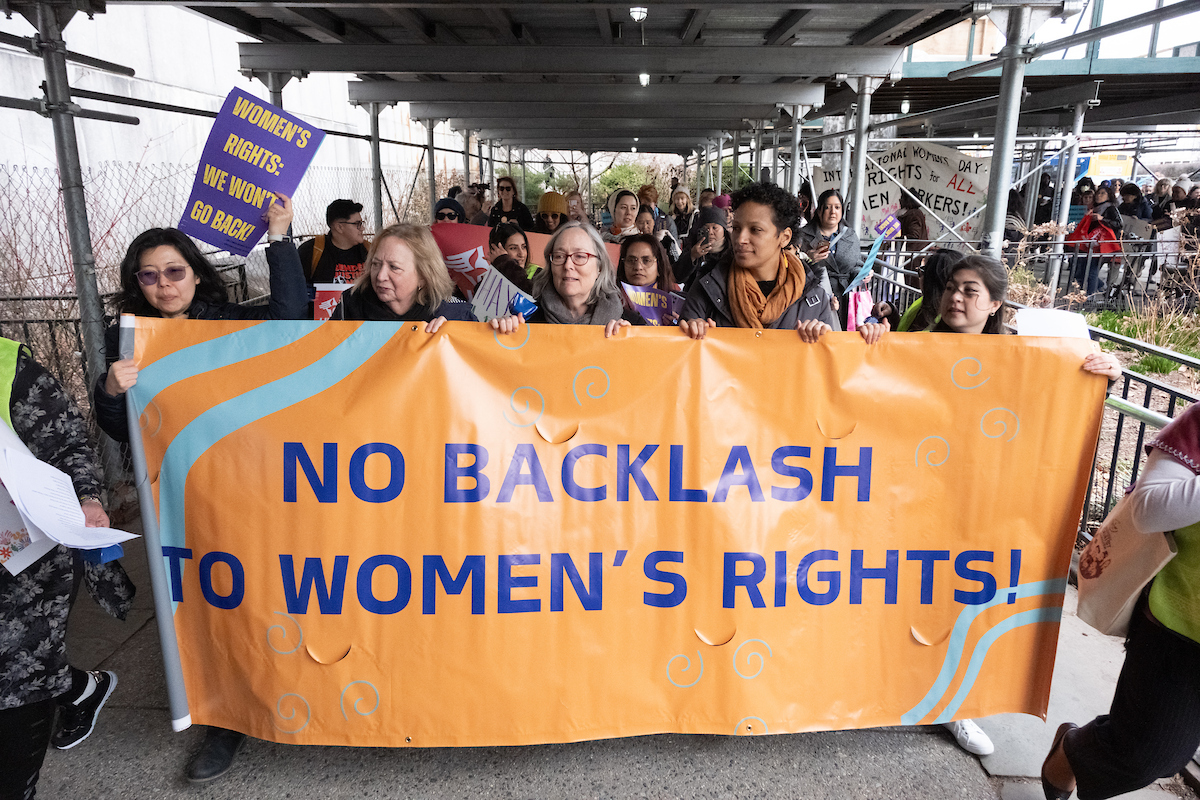
What Is Fundamentalism?
In May 2024, ACT Alliance organised regional and national dialogues in Latin America and the Caribbean to better understand how fundamentalisms impact human rights violations in the region. During the closing event called “Guatemala+5”, participants agreed on a definition of Fundamentalism:
Fundamentalism is a strict, literal and uncompromising adherence to doctrinal principles that consider the social roles of class, gender and ethnicity as natural, sacred and immovable. Because of its diverse sources (religious, economic, political and cultural), it is pertinent to speak of a convergence of fundamentalisms. Fundamentalisms are associated with a dogmatic and absolutist vision of reality that promotes exclusion, discrimination and denial of rights to various social groups. Fundamentalisms represent a threat to democracies because they translate into discrimination and violation of the rights of women, indigenous groups, sexual minorities and progressive positions. Fundamentalisms hinder ecumenical diakonia aimed at addressing humanitarian, environmental, gender justice and human security challenges. Far from being a spontaneous effect, the convergence of fundamentalisms obeys a planned agenda driven by the global extreme right that instrumentalizes religion to justify exclusive and discriminatory actions, relying on its economic and political power.
“Fundamentalism manifests itself in different dimensions. The religious dimension assumes the existence of a single and valid literal interpretation of sacred texts. Religious literalism especially affects sexual and reproductive rights, gender equality and diversity. The second dimension most frequently mentioned in the Dialogues is the political one, which manifests itself as an authoritarian ideology that promotes nationalism, the exclusion of minorities and the erosion of democratic norms. It is associated with the repression of rights and control of the state apparatus. The cultural dimension, which also appears frequently in the Dialogues’ narrative, is reduced to a monolithic vision of values and social norms, justifying the exclusion of those who do not adhere to these values, which leads to discrimination against racial, ethnic and sexual minorities. Fundamentalism, according to the Dialogues, also has an economic dimension, i.e., the belief that the only valid economic model is the neoliberal and more recently the anarcho-capitalist one” (Guatemala+5 report).
Fundamentalism is characterised by a clear-cut doctrine and a literalist approach to reading the Bible, and often by a unique view of history. Through the decades, fundamentalist groups in the U.S. and beyond, concentrated much of their energy on building institutions, such as separatist churches and schools that would allow them to shun the corrupting influence of society and competing forms of Christianity. These institutions also enabled fundamentalists to become effective political organizers for conservative moral reform, as was demonstrated by Jerry Falwell’s “Moral Majority” in the 1970s (Harvard University – The Pluralism Project).
This ideology frequently merges with nationalist rhetoric, patriarchal values, and anti-scientific thinking. It thrives on cultural polarization and often casts religious difference, gender equality, LGBTQI+ rights, and environmental protection as threats to what they believe are “biblical truths”. In many countries, this fusion of fundamentalist theology and political ambition has led to rollbacks in human rights and restrictions on civic space. In contrast, ACT Alliance’s ecumenical and diaconal approach understands our calling as expressing God’s love through compassion, justice, and solidarity. Fundamentalism, by comparison, is marked by exclusivism, moral absolutism, and claims of divine authority to reshape social and political institutions.
With over 80% of the world’s population identifying with a religion, it is neither wise nor realistic to dismiss such movements as marginal. As people of faith committed to human rights, peacebuilding, ecological stewardship and economic justice, we have a responsibility to counter obscurantist narratives and to promote a vision of social transformation rooted in dignity, peaceful coexistence and inclusion.
Fundamentalisms represent a threat to democracies because they translate into discrimination and violation of the rights of women, indigenous groups, sexual minorities and progressive positions.Guatemala +5Report ACT Alliance
“Praying for Armageddon”: Militarised faith and the politics of the Apocalypse
Praying for Armageddon (Tonje Hessen Schei & Michael Rowley, 2023) is an investigative documentary exposing how segments of the U.S. ultra conservative movement actively work to shape national politics and foreign policy in line with their apocalyptic worldview. The film takes viewers into the world of pastors, political lobbyists, and military leaders who interpret current events through the lens of biblical prophecy – especially the Book of Revelation. The documentary argues that this worldview is not a fringe phenomenon, but a well-organised and well-funded political force that has penetrated key decision-making spaces.
The documentary shows how fundamentalist leaders have developed a strategic alliance with political actors, particularly within the Republican Party, to advance a religious nationalist agenda. Central to this strategy is the Seven Mountains Mandate, which calls for taking control of government, media, education, military, business, arts, and religion to establish a society based on their biblical interpretation. Ultra conservative leaders mobilise their congregations as a voting bloc, influence judicial appointments, and secure direct access to lawmakers, blurring the line between church and state. This alliance is presented not as a passive influence but as an intentional and long-term plan to remake the U.S. political landscape in the image of a specific theology.
The film highlights the impact of fundamentalism on U.S. foreign policy in the Middle East. Some leaders openly believe that strengthening Israel’s geopolitical position, including through military support and settlement expansion will speed up the fulfilment of prophecy and trigger the end times. This eschatological framing is shown to have real-world consequences, from the U.S. decision to move its embassy to Jerusalem to unconditional backing of Israeli military actions, including those in Gaza today. The film argues that such policies are driven less by strategic interests or human rights concerns and more by religious conviction, creating potentially destabilising effects for the region and for international law.
The political use of eschatological framing is evident in a recent statement by Israeli Prime Minister Benjamin Netanyahu, who described the current events in Gaza as a “historic and spiritual mission” aimed at achieving the establishment of a “Greater Israel.”
“As followers of Christ, now more than ever, Christians are called to challenge any and all fundamentalist interpretations of religion that are in the service of ’empire’ with today’s unholy convergence of military, economic, social and political power and privilege and to ask ourselves: In what ways we are truly living out Jesus’ commandment to “love one another as I has loved you,” says Wendy Gichuru from United Church of Canada.
As followers of Christ, now more than ever, Christians are called to challenge any and all fundamentalist interpretations of religion that are in the service of 'empire' with today's unholy convergence of military, economic, social and political power and privilege and to ask ourselves: In what ways we are truly living out Jesus' commandment to "love one another as I has loved youWendy Gichuru United Church of Canada
“Apocalypse in the Tropics”: from pulpit to congress
The politically motivated ultra conservative religious wave is not limited to the U.S., Apocalypse in the Tropics (Petra Costa, 2024) explores the rise of religious fundamentalism in Brazil and its deep entanglement with the country’s political transformation under former president Jair Bolsonaro. Through extensive interviews and archival footage, the documentary reveals how religious leaders, most prominently pastor Silas Malafaia have acted as political “kingmakers,” using pulpits, television, and social media to influence elections, shape policy, and mobilise mass support for authoritarian-leaning governance. The central theme is clear: when religion becomes a political machine, democracy itself is at risk.
While the film focuses on Brazil, its story is part of a wider regional trend. Across Latin America, these movements have gained significant political influence, often positioning themselves as defenders of “family values” against what they describe as the threats of “gender ideology” and secularism. In countries such as Guatemala, Costa Rica, and Colombia, ultra conservative religious leaders have successfully mobilised voters to block progressive reforms on issues like same-sex marriage, abortion rights, and comprehensive sexuality education. In El Salvador and Nicaragua, religiously inspired moral conservatism has been woven into government policy, sometimes in alliance with authoritarian regimes.
These movements have also made education a key battleground. In Brazil, ultra conservative politicians have opposed inclusive curricula and pushed for creationist teachings. In Colombia, religious actors have fought against anti-bullying campaigns that protect LGBTQI+ students, framing them as attempts to “sexualise” children. The strategic aim is to shape not only law and policy, but also the cultural norms of the next generation.
“What we are witnessing in Brazil and across Latin America is not an expression of faith in its liberating and transformative sense, but rather the instrumentalization of religion as a political weapon. When religious leaders turn pulpits into platforms for partisan power, they distort the spiritual vocation of the church and place democracy at risk. This trend has already resulted in the erosion of rights for women, indigenous peoples, and LGBTQI+ communities, while legitimising authoritarian tendencies. As faith communities, we must reclaim religion as a force for justice, inclusion, and human dignity, never as a tool to impose fear or roll back hard-won freedoms,” says Rudelmar Bueno de Faria, ACT Alliance General Secretary.
In her documentary, Costa pays special attention to how this fusion of faith and politics disproportionately harms women, indigenous peoples, and other marginalised groups. Ultra conservative lawmakers in Brazil have championed restrictive abortion laws, resisted protections for survivors of gender-based violence, and undermined indigenous land rights in the Amazon,often framing such positions as part of a divine mandate. The documentary also connects this religious-political alliance to the erosion of democratic institutions, showing how faith-based populism contributed to the January 8, 2023 assault on Brazil’s government buildings. For Costa, the danger lies not in personal faith, but in the political manipulation of religion to consolidate power, suppress dissent, and roll back hard-won rights.
“Regressive networks, which are well funded, have quickly become powerful, cloaking fundamentalisms, patriarchy and neoliberalism – in religion – to erode human rights, silence diversity and dismantle democracy,”says Rachel Tavernor, Global Advocacy and Development Policy Manager at ACT Alliance.
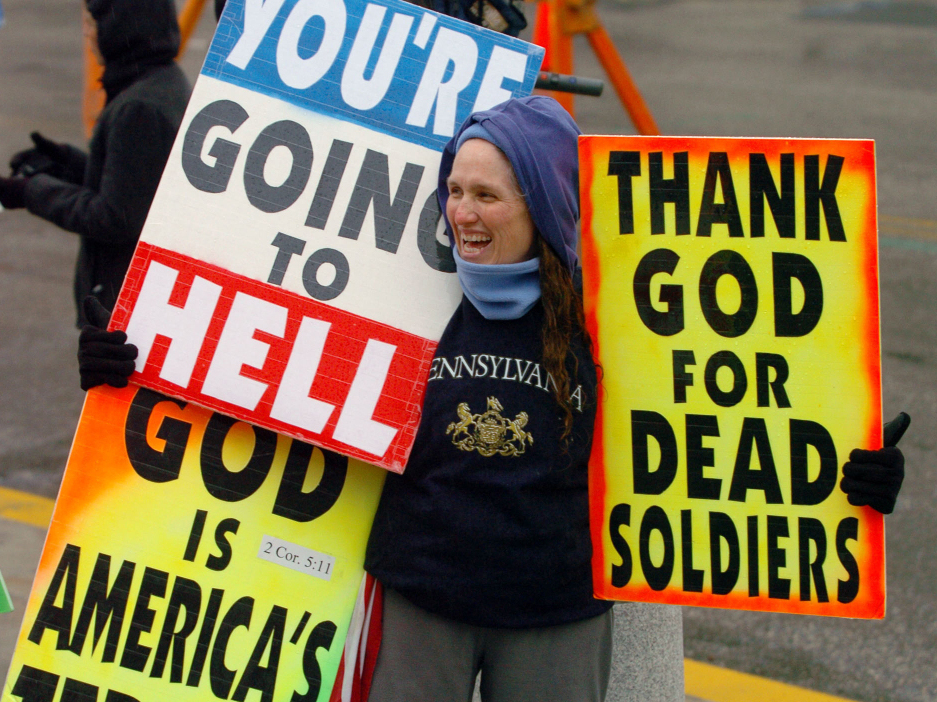
From Washington to Brasília: A globalized rights erosion playbook
Although Praying for Armageddon and Apocalypse in the Tropics focus on the United States and Brazil, the forces they expose are part of a wider, transnational movement. The methods, weaving conservative religious moralism into political mobilisation are being exported, adapted, and legitimised across borders.
In the United States, the fusion of fundamentalist theology and political power has been honed into a strategic formula: mobilise congregations as voting blocs, embed loyal actors in key institutions, frame political struggles as divine battles, and use well-funded media networks and influencers to control the narrative. In Brazil, this playbook has been adapted to local realities, with megachurches acting as political power centres, shaping education policy, influencing judicial appointments, and mobilising voters behind an agenda that undermines gender equality, indigenous rights, and democratic safeguards.
Across Latin America, similar dynamics are reshaping politics. In Guatemala, ultra conservative lawmakers have championed restrictive reproductive laws and opposed LGBTQI+ rights under the banner of protecting “family values.” In Colombia, religious leaders have mobilised to block anti-bullying measures that protect LGBTQI+ students, portraying them as attempts to “sexualise” children. In Costa Rica, conservative Christian coalitions have turned elections into referendums on same-sex marriage. In Peru, alliances between religious conservatives have resisted indigenous land protections, often in the name of economic growth. In El Salvador and Nicaragua, religious rhetoric has been woven into authoritarian governance, reinforcing repressive policies and shrinking democratic space. These movements share a strategic focus on education and cultural policy, aiming to shape the beliefs and norms of the next generation.
Ultra conservative forces support capitalism while mistrusting globalization. On the one hand, they support protectionist policies to protect workers, on the other they align with powerful corporate interests to undermine Indigenous rights and environmental protections. In Brazil, for example, agribusiness and conservative legislators pushed for the controversial Marco Temporal law, seeking to restrict Indigenous land claims and clear the way for large-scale soy and cattle production. In Guatemala, the government declared a state of siege in El Estor to break Q’eqchi’ resistance to a foreign-owned nickel mine, deploying police and military power to secure corporate operations. These examples illustrate how religious rhetoric, nationalist narratives, and state power are mobilised in service of extractive projects that enrich elites while deepening displacement and violence against Indigenous communities.
There is clear complicity between fundamentalist actors and corporations seeking to seize the region’s vast resources, disguising extractivism as development programs. All this has a direct cost in human lives—particularly women and human rights defenders in the territories—and drives forced migration of peasant and Indigenous communities, whose protection laws are repealed or outright ignoredPilar Cancelo SEDi, Argentina
But these dynamics are not confined to the Americas. In the United Kingdom, The Guardian recently reported that librarians are increasingly being pressured to remove or restrict access to certain books ,often those with LGBTQI+ themes, racial justice content, or progressive gender narratives. Many of these campaigns have roots in, or inspiration from, U.S.-based pressure groups. This cultural import mirrors the tactics used in the U.S. to reshape school curricula and public discourse,signalling how ideas born in one political-religious context can quickly cross the Atlantic.
Across Eastern Europe, Christian nationalist rhetoric has been weaponised to roll back reproductive rights and LGBTQI+ protections in Hungary and Poland, with political leaders positioning themselves as defenders of “Christian civilisation.” In Sub-Saharan Africa, U.S. ultra conservative religious networks have provided both funding and ideological support for anti-LGBTQI+ legislation, most recently in Uganda’s Anti-Homosexuality Act. Even in the Pacific Islands, climate action has been undermined by faith-based lobbying that denies or downplays the climate crisis, often invoking dominionist theology to justify environmental exploitation.
These examples reveal a coordinated ecosystem:
- Export of Ideology: U.S. fundamentalist religious networks send not only preachers, but political strategy, training materials, and talking points abroad.
- Funding Streams:Churches, NGOs, and advocacy groups channel financial resources to aligned movements overseas.
- Legitimisation through Success Stories:Victories in one country are showcased globally to inspire similar campaigns elsewhere.
We are witnessing a pervasive and relentless opposition to human rights and gender justice in multilateral fora, along with a rise in fundamentalist agendas and shrinking of civic space. Conservative religious forces have developed sophisticated methods and strategies to influence governments and negotiations of multi-lateral institutions: these include lobbying guidelines and manuals, powerful communication strategies and even targeting of opponentsCaterina Tino UN Representative at ACT Alliance
The global consequences are profound. Whether in Washington, Brasília, London, Budapest, Kampala, or Suva, these alliances threaten pluralism by seeking to enshrine one religious worldview in law and public life. Women’s rights, LGBTQI+ inclusion, and indigenous sovereignty are treated as obstacles to a “biblical” social order. Climate action is reframed as “fake news” or even contrary to God’s will.
Seen together, the two documentaries are more than national portraits, they are prophetic warnings. They show that Christian fundamentalism, when harnessed to manipulate political power, becomes a well-funded, strategically savvy, and globally networked force, capable of dismantling rights and reshaping democracies.
A Faith-Based Response
While these documentaries expose the dangers of a politicised and exclusionary use of Christianity, it is vital to remember that faith is not the enemy of democracy, equality, or human dignity. Around the world, faith traditions — Christian and otherwise — are deeply diverse, grounded in different histories, cultures, and theological understandings. Many communities of faith are committed to the very principles that fundamentalist movements seek to erode: justice, compassion, inclusion, and care for creation. Our collective challenge is to make these values visible, so that theology is not monopolised by voices that distort it for power.
Within ACT Alliance, we witness daily how liberating theologies and diakonia can inspire the defence of human rights and the protection of the planet. Member churches in Latin America have stood alongside indigenous communities resisting land grabs and environmental destruction. Faith leaders in Africa have spoken out courageously against gender-based violence, for bodily autonomy and called for the full inclusion of LGBTQI+ people in church and society. Across Europe and North America, ACT members have mobilised congregations to support refugees, advocate for climate justice, and confront racism. These widespread and alternative theological voices — rooted in scripture, yet open to dialogue and pluralism — demonstrate that faith can and must be a source of liberation rather than oppression, of bridge-building rather than division.
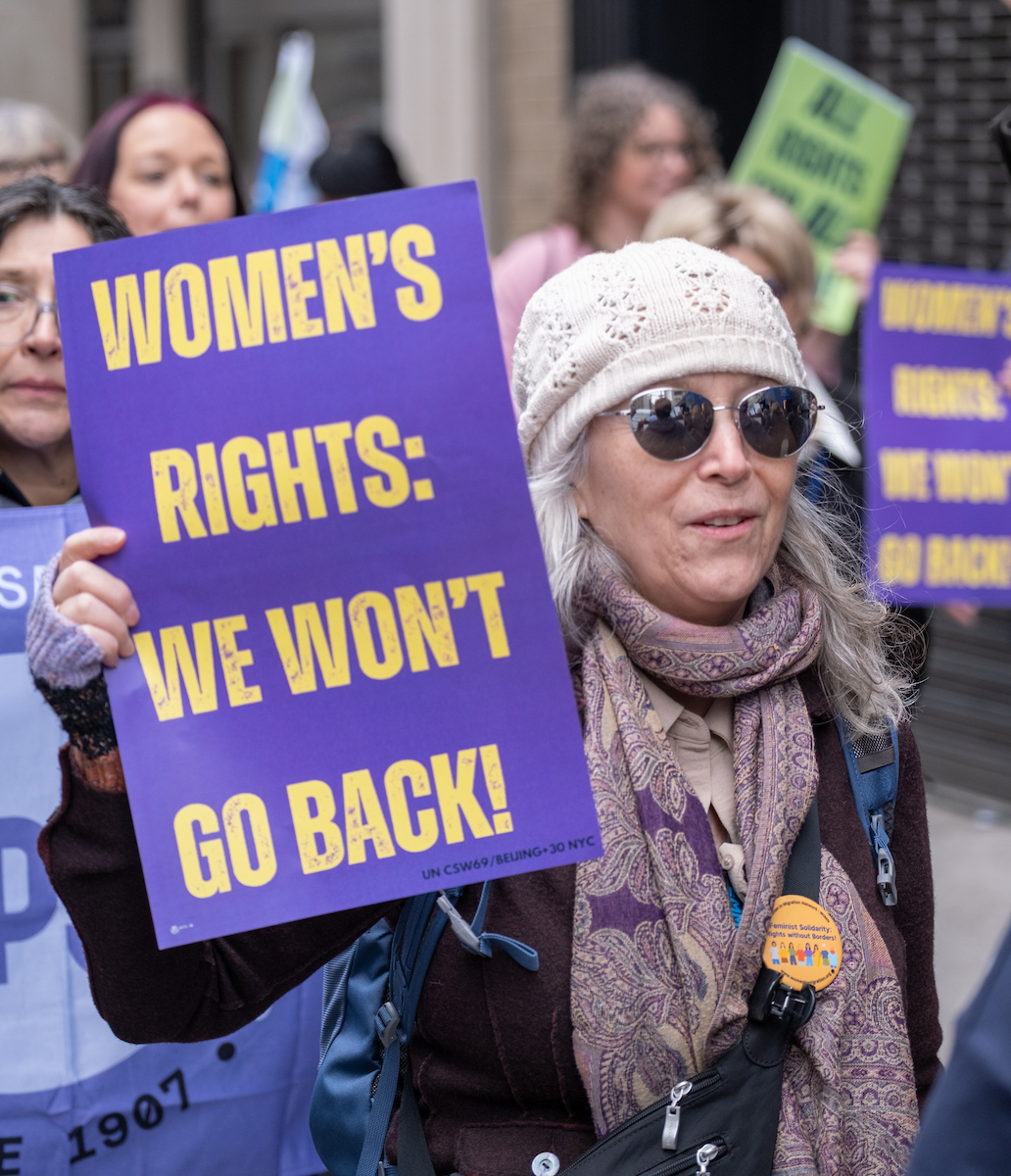
Reclaiming our Faith from Extremism
As people of faith committed to justice, we cannot remain silent in the face of this global wave of regressive agendas. The same networks that erode women’s rights in one country, censor books in another, and undermine climate action in a third are interconnected — sharing strategies, funding streams, and rhetoric. Our moral responsibility is to connect these dots, to name the forces at play, and to speak clearly about how they contradict the core values of dignity, equality, and care for creation that many of our faith traditions uphold.
Silence or neutrality in this moment risks allowing the loudest and most exclusionary voices to define what it means to be a person of faith. By confronting fundamentalist narratives directly — in our pulpits, public statements, advocacy, and community work — we not only defend the rights under attack but also reclaim the space for a vision of faith that is inclusive, life-affirming, and committed to the common good. This is not a political luxury; it is a spiritual and ethical imperative.
For ACT Alliance members and partners, this is a moment to move from quiet conviction to visible, coordinated action. We must equip our communities to recognise the warning signs of regressive, anti-rights agendas — and to respond with advocacy, solidarity, and public witness. This means engaging with policymakers, challenging misinformation, supporting those most affected by discriminatory laws, and strengthening alliances across faiths and civil society.
We cannot counter a powerful transnational movement with a fragmented response. The strength of ACT Alliance lies in its global reach, its interfaith approach, and its rootedness in local communities. By amplifying diverse theological voices within our membership, and by standing shoulder-to-shoulder across regions and traditions, we can ensure that faith is not weaponised to divide and exclude, but mobilised to protect rights, defend democracy, and care for creationRudelmar Bueno de Faria ACT Alliance General Secretary
Human rights leaders, including governments, should work hand in hand with faith- based organisations, like ACT Alliance, to counter narratives that marginalise and erode the democratic debate and protect those courageous voices that put their lives on the line to promote an idea of faith that is based on love rather than suspicion and hate.
This is the challenge of our time — and meeting it will require nothing less than courage and collective resolve.
Lee la versión en español aquí

